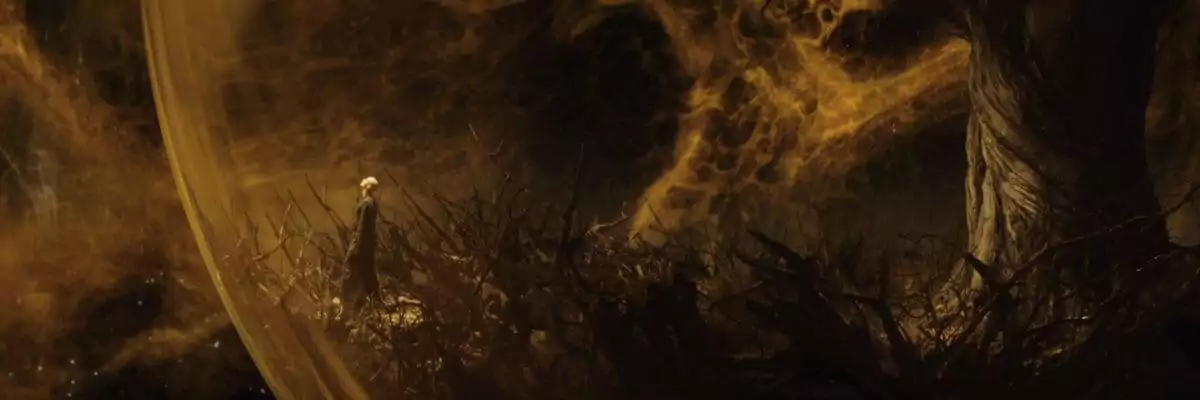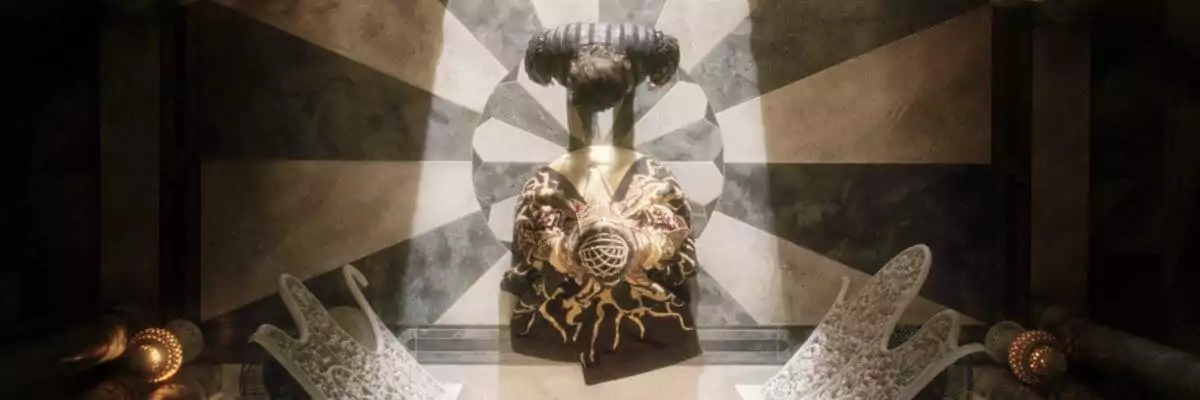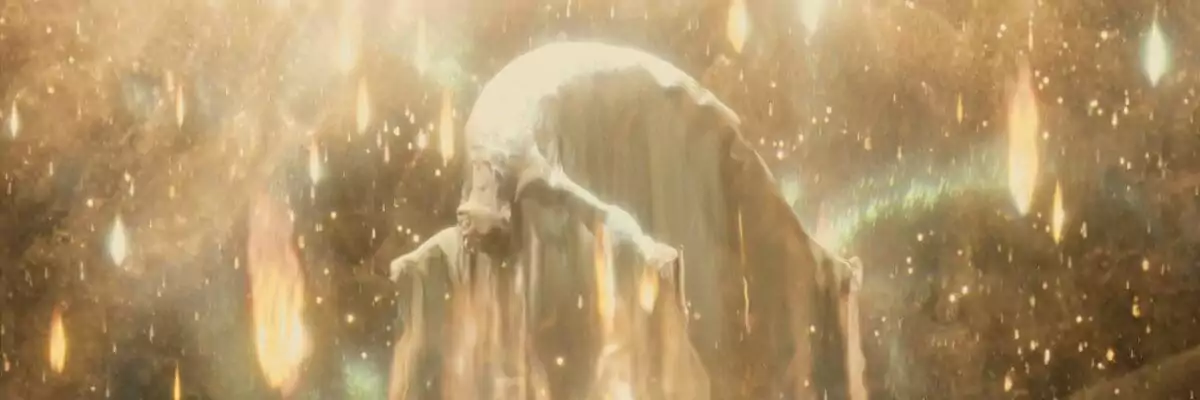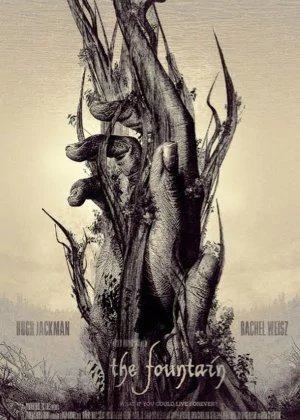The Fountain
Darren Aronofsky's The Fountain. The first time I watched it, it was a real tough nut to crack. Compared to Pi and Requiem for a Dream I found it to be a little disappointing, but on its own it was another wildly inventive and original entry in his oeuvre that was well equipped to become a cult favorite. In the end I liked it well enough, but I never really looked back until now. Not sure of what to expect, I gave Aronofsky's third another whirl and that turned out to be a smart choice. If anything, the film only got better with time.

Even though Aronofsky has a rather particular way of making films, he rarely repeats himself. It wasn't a big surprise then that The Fountain deviated quite a lot from his previous work. What I really didn't expect to find though was a rather sentimental romance at The Fountain's core. I had some trouble adapting at first, not in the least because Aronofsky doesn't really know subtle and when it comes to romance and drama I usually prefer a more stilted approach. But once the structure reveals itself and Aronofsky's stylistic prowess gets up to speed, it was obvious this wasn't going to be just another average tear jerker.
The film spans three different eras. One set during the times of the Conquistadors, one in modern times and one set in a distant future. All three stories are inhabited by the same characters and share very similar events, though Aronofsky isn't too interested in blending these realities to add confusion or mystery. Instead they fit together the form one bigger, more coherent story. While it sounds a bit complex, the narrative structure feels in fact quite natural and not at all forced or convoluted.
The story revolves around a couple battling a deadly disease. Isabel is the one on the brink of dying, her husband Thomas is a doctor looking for a cure. Even though he's making significant progress, saving his own wife seems less likely with every minute that passes. The part with the Conquistadors is introduced as a story written by Isabel, the futuristic bits are a more ethereal and symbolic continuation of the main plotline. Ultimately though, it's just a very simple tale about the strong love between a man and a woman.

On the whole, The Fountain is a good-looking film. Nice use of colors, fine camera work, solid editing. It's not the most expressive of Aronofsky's films, but his signature is clearly visible. Those futuristic scenes are quite something else though. Eschewing the overuse of digital effects, Aronofsky turned to microphotography to create his futuristic world, and so we're really looking at computer-enhanced yeast and curry powder instead of digitally created galaxies. It sounds bonkers but the effect is absolutely stunning and it immediately became a defining feature of the film.
The soundtrack is also less outspoken compared to Aronofsky's earlier films. It's still very present and demands to be heard, but it's more in line with genre conventions. That means it's a decidedly more romance-driven score, though without ever becoming too sentimental or cheesy. On the contrary even, while not very subtle it still manages to be quite classy and heartfelt. It's a somewhat unlikely combination but the fact that Clint Mansell managed to pull it off is quite a feat in itself.
Sadly the cast is one of the weaker elements of the film. Not that they're doing a terrible job, but both Weisz and Jackman fail to add much depth to their characters. There's enough chemistry between the two, but their performances are a bit too overstated at times. The secondary cast features some familiar faces (Ellen Burstyn and Mark Margolis are two names inherently linked to the films of Aronofsky), but they don't have enough screen time to make a considerable impact. For a film like this, a better central duo probably would've raised the score even further.

The Fountain is a film that needs a little time to get going. The first 30 minutes are a little scattered and the emotional core takes a while to establish itself. But once Aronofsky is done placing all the different pieces on the board the film propels itself forward with an unstoppable force. It builds up towards an explosive finale and with Aronofsky behind the camera, that means you're in for a real treat. The final 15 minutes or so are true masterpiece material and will leave you behind feeling pretty wholesome and content.
Aronofsky is an extraordinary film maker. You may not like his style, you may not like his lack of subtlety, but he makes things that don't conform to the norm. You could try and sell The Fountain like a romantic drama, but it would just misinform people about what to expect from this film. The Fountain is a unique experience, an amalgam of three different timelines that come together to create one dramatic romance. If you like Aronofsky's work, just watch it, it you can't stand the man, chances are this won't be for you either.
